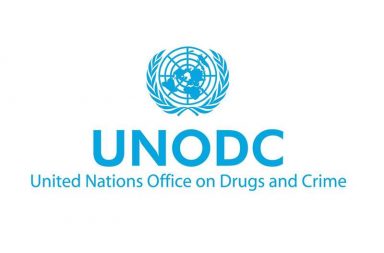By Shyikh Mahdi
The release of the Bollywood hit Pad Man last year in February fueled an online campaign, where a huge number of people, celebrities and fans alike, posted photos of them holding sanitary pads on social media. Consequentially, the viral campaign put #PadManChallenge as one of the top trends in social media for quite some time.
The film depicted the life and work of Arunachalam Muruganantham, a man known as India’s Menstrual Man. In 1998, soon after marrying his wife, he realized she was using soiled clothes to manage her period. When she explained that she couldn’t afford to buy both sanitary pads and milk for their family, he decided to take the matter into his hand. He experimented with different materials which his wife and local medical students refused to try and test. In the end, he tested the sanitary pads himself and continued the research until he built a machine that makes sterilized sanitary napkins at a far cheaper cost.
Today he has 2,500 machines in India and a few hundred across 17 other countries, providing sanitary napkins for women at a cheaper cost. In 2014, Muruganantham was named one of Time’s 100 most influential people in the world.
The constant toiling and stigmatization he had to undertake socially (as portrayed by Akshay Kumar in the film) is basically the regular story of the majority of the women around, especially in the conservative social structure of South Asia.
Legal development on menstrual hygiene: the changing landscape
The discussion on the legal development on menstrual hygiene, in our view, has three key aspects: (1) decoding the stigma surrounding the issue; (2) ensuring safe hygiene practices and access to sanitary products and (3) advanced concepts like a menstrual leave in the workplace.
A brief assessment of each of the above categories reveals a stark reality of patriarchal oppression prevalent in every society.
(a) Destigmatization of Menstruation
One of the commonly practiced issues in many societies was to seclude the women during menstruation. ‘Chhaupadi’ was an ancient Hindu practice of ‘menstrual exile’, still prevalent in Nepal, which forced women to stay out of their homes during menstruation and after childbirth. In 2005, the Supreme Court of Nepal declared the custom illegal and directed the Nepalese government to criminalize such practice. Despite the verdict and efforts of the activists, it took about a decade to enact a law that criminalized “Chhaupadi” and it was finally passed in August 2017.
However, the recent tragic incident of a woman and his two sons dying from suffocation in a ‘menstruation hut’ in Nepal has caused the debate to resurface, where mere legislations are proved to be ineffective without changes in social norms.
(b) The tax burden on sanitary products
A worldwide trend of treating menstrual hygiene as luxury products for tax purposes is ensuing, which clearly marks a roadblock in accessing sanitary products. This practice, however, is being challenged legally and politically, marking a paradigm shift where the rigid patriarch outlook towards menstruation seems to fade away.
Recently, India is witnessing a wave of protests as the central government imposed a general service tax (“GST”) on a number of products including menstrual hygiene products. In November 2017, in response to a writ petition by a student of Jawaharlal Nehru University, a division bench of Delhi High Court questioned why GST on menstrual products should not be waived. Critics also observed the absence of any woman in the 31-member council which determines the GST on consumer products. As an intriguing mode of protest, packets of sanitary products were sent to Mr. Arun Jetley(finance minister) and to Mr. Narendra Modi as well.
The similar situation occurred in the UK in 2015 when the tax on menstrual products (which was implemented in 1973) was made a factor in the election. Upon strong protests from concerned activists, an amendment was proposed by a member of the UK parliament, Paula Sherriff, to waive the tax popularly termed as ‘tampon-tax’. However, the implementation of the amendment might take a while (probably up till 2022) due to the Brexit complexities.
Canada also waived taxes on menstrual products in 2015. However, in the U.S., this issue came into the spotlight on January 2016, when an activist asked President Obama about whether he is aware of the fact that in 40 states, feminine sanitary products are treated as luxury goods. His response was: “I have to tell you, I have no idea why states would tax these as luxury items”. This pretty much sums up the secrecy constructed around the issue in mainstream discussion.
Bangladesh however, reduced the supplementary duty on sanitary products in 2015. By an amendment brought in the Value Added Tax Act, 1991 by the Finance Act, 2015, the tax slab came down to 45% from a staggering 60%.
(c) Menstrual leave at the workplace: viable development?
A number of Asian countries like Japan, Taiwan, Indonesia, and South Korea allow women to request days off work, something that one academic called “an unusual institutionalized practice”. Italy however, attempted to introduce a similar law which was strongly opposed and therefore, shelved.
At one hand, activists find this concept helpful for women to get through the uncomfortable days without any extra pressure. On the other hand, critics argue that such leave would reinforce the notion that menstruation is a disease or an affliction, and may be regarded as seclusion. Some women also fear that taking such leave will brand them as weak or ‘crippled’. As a result, Japanese women do not often utilize the leave (despite having the law being in force since 1947) in the fear of being paid less or being given less authority at the workplace. Similarly, the policy in Indonesia is poorly enforced although the women are entitled to a monthly leave of two days. In South Korea, the initiative was vehemently opposed by men activists who termed this as a tool of ‘reverse discrimination’.
Menstrual hygiene and Bangladesh
Bangladesh, as a Muslim-majority country is still taking baby steps for ensuring menstrual hygiene for half of its population. Some activists assert conservative religious traditions as a major catalyst behind this secrecy/taboo around menstruation. However, Islamic fiqh did not hold back at all in discussing the issue in detail, and the prophet (PBUH) and his companions were also very open about it.
A number of initiatives have been taken to ensure better access to sanitary products for the women in lower strata of the society (for example, HerHealth program focusing on the female RMG workers), and there are still a lot can be done.
The overall situation vividly portrays how the world uncomfortably moves around a biological process which, quite literally, runs the human race on this planet. It is high time we stop condemning women for a physical phenomenon that takes a massive toll on their bodies. Let’s start a dialogue or maybe just a conversation with our mothers, our sisters, our friends. Every tiny step we take will keep our girls better.
An abridged version of this article appeared in the Daily Observer
Shyikh Mahdi is a Bangladeshi lawyer and founder of the FutureLaw Initiative. He can be reached at mahdi@futrlaw.org



